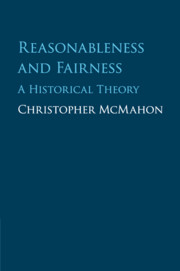Book contents
7 - The History of Political Morality
from Part II - The History of Reciprocal Concern
Published online by Cambridge University Press: 24 November 2016
Summary
As was mentioned in Chapter 3, political morality seeks to answer questions of two different kinds about how political cooperation morally ought to be organized. The first concerns the cooperative scheme that morally ought to be put into place. The second concerns how, in the normal case where there is disagreement about this, the decision among the different possible cooperative schemes morally ought to be made. In Chapter 3, I said that in a modern liberal polity, conceptions of the public good provide answers to questions of both these kinds, and I suggested that the world may be entering a historical phase where all competent reasoning about political morality has important liberal elements. But the two questions that political morality seeks to answer also arise in connection with the pre-liberal polities of the past, and given the normative pluralism implicit in the constructivist view that I have proposed, we must be prepared to admit the possibility that competently reasoned pre-liberal answers to the two questions were available in the past. The discussion that follows is focused on the Western past, but I take it that the general mechanisms discussed have operated in non-Western societies as well.
I have proposed that the history of political morality unfolds through the operation of the conceptual-cum-social process. Conceptual change and social change reciprocally condition one another. Validation of this proposal would require actual historical research. I do not have the training to undertake this. Instead, in this chapter, I try to explain in more detail how the claim that the conceptual-cum-social process has been operative in history should be understood. Establishing this is a necessary preliminary to any actual historical investigation of my hypothesis. The discussion that follows relates the account of moral evolution that I propose to the influential approach to the history of political thought developed by Quentin Skinner, and then considers how some actual episodes of political history might look if my view is correct. The chapter concludes with a discussion of the possibility of moral progress.
Although I will not be attempting the requisite historical research, something should be said about the form it would have to take. It could not simply assemble details from the historical record. As I understand it, the evolution of political morality is a normative phenomenon. It involves change over time in what is really right in the organization of political cooperation.
- Type
- Chapter
- Information
- Reasonableness and FairnessA Historical Theory, pp. 205 - 241Publisher: Cambridge University PressPrint publication year: 2016



